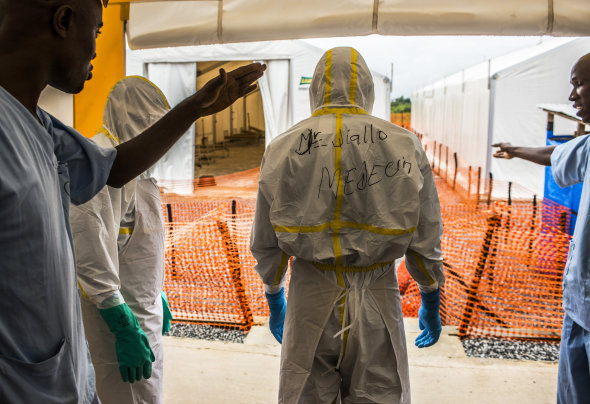
Ebola is one of the world's most deadly pathogens, with the terrifying ability to rip through towns, medical centres and even nations, and for the first time, researchers have created a vaccine to stop it.
More than 11,300 people died in the most recent West Africa ebola epidemic, and the world's epidemiologists strengthened their efforts to find a vaccine or treatment protocol.
While Beijing scientists made solid ground, it was researchers in Norway who today published the results of their 11,800-strong trial in Guinea -- where not one inoculated person contracted the disease.
This is especially promising because people chosen for the trial were friends, family and associates of an individual who contracted ebola during the height of the outbreak in 2015.
"When a new Ebola case was diagnosed, the research team traced all people who may have been in contact with that case within the previous three weeks, such as people who lived in the same household, were visited by the patient, or were in close contact with the patient, their clothes or linen, as well as certain 'contacts of contacts'," a spokesperson said in journal The Lancet.
"A total of 117 clusters (or rings) were identified, each made up of an average of 80 people."
Norwegian Institute of Public Health Infectious Disease Control director John-Arne Røttingen said they couldn't do it alone.
"This both historical and innovative trial was made possible thanks to exemplary international collaboration and coordination, the contribution of many experts worldwide, and strong local involvement," Røttingen said in a statement.
We are proud that we have been able to contribute to developing a vaccine that will prevent other nations from enduring what we endured.KeÏta Sakoba
The vaccine was manufactured by Merck, Sharpe and Dohme, with Breakthrough Therapy Designation from the United States Food and Drug Administration and special status from the European Medicines Agency, to allow it to get to trial stage quickly. The World Health Organisation also assisted in the trial in Guinea with support from the Wellcome Trust, the United Kingdom Department for International Development, the Research Council of Norway, the Canadian Government and Médecins Sans Frontières.
For Guinea National Agency of Health Security Ebola Response Director KeÏta Sakoba, the vaccine brings hope that next time Ebola emerges, ti will be stopped before lives are lost.
"Ebola left a devastating legacy in our country," Sakoba said.
"We are proud that we have been able to contribute to developing a vaccine that will prevent other nations from enduring what we endured."
ALSO ON HUFFPOST AUSTRALIA









